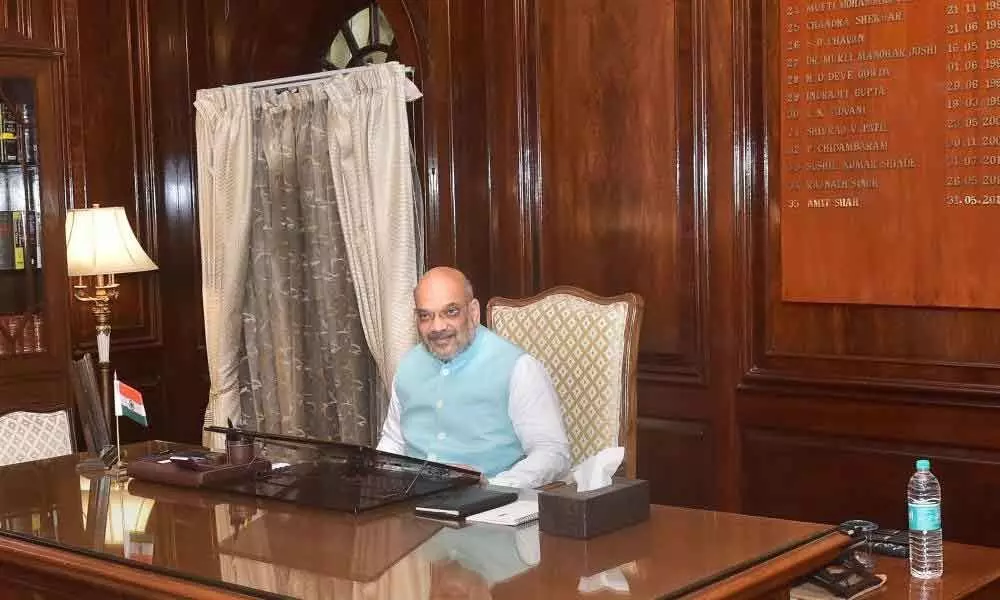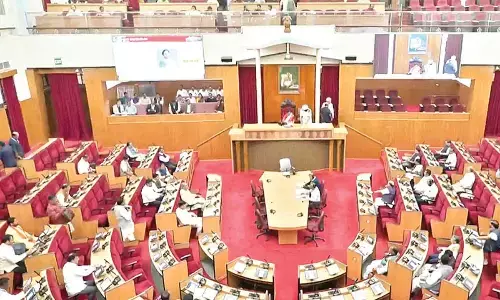From Citizenship Act to Article 370: 2019 a busy year for Ministry of Home Affairs

2019 proved to be a watershed year for the Ministry of Home Affairs with abrogation of provisions of Article 370, enactment of the Citizenship Amendment Act, the terror attack in Pulwama and a host of other issues keeping it busy.
NEW DELHI: 2019 proved to be a watershed year for the Ministry of Home Affairs with an abrogation of provisions of Article 370, enactment of the Citizenship Amendment Act, the terror attack in Pulwama and a host of other issues keeping it busy.
The year also saw BJP President Amit Shah assuming charge of the crucial ministry and taking a few tough decisions that rocked the country, the subcontinent as well as different parts of the world.
Just two months after the Narendra Modi government assumed office for the second consecutive term, Shah on August 5 announced in Rajya Sabha the decision to end the special status given to Jammu and Kashmir under Article 370 and bifurcation of the state into two Union Territories.
Thus ended one of the most contentious provisions of the Constitution that had allowed a separate flag, a Constitution to Jammu and Kashmir for seven decades.
Before this announcement, there was a massive deployment of troops in the Kashmir Valley, a complete clampdown on communication links and detention of hundreds of people, including three former chief ministers — Farooq Abdullah, Omar Abdullah and Mehbooba Mufti.
While landline phones and mobile networks were restored after several weeks, internet services still continue to be suspended and the three chief ministers incarcerated.
Before the "historic step", as described by the home ministry, was approved by Parliament, Shah had announced that it will end three decades long militancy, bring development and merge Jammu and Kashmir completely with the rest of India.
Pakistan angrily reacted to the abrogation of the Article 370 provisions, going to the United Nations with the help of China but in vain.
A few countries like Turkey and Malaysia openly criticised India for the decision on Jammu and Kashmir but most countries, including France, Russia and the US stood behind India saying it was an internal matter.
The contentious legislation, the Citizenship Amendment Act (CAA), piloted by the MHA under Shah, got the approval of Parliament in the recently concluded Winter Session.
But CAA evoked strong protests in different parts of the country for its alleged discriminatory provisions, leading to the death of nearly two dozen people during these demonstrations.
According to the Act, members of Hindu, Sikh, Buddhist, Jain, Parsi and Christian communities who have come from Pakistan, Bangladesh and Afghanistan till December 31, 2014 facing religious persecution there will not be treated as illegal immigrants but given Indian citizenship.
On February 14, Jammu and Kashmir witnessed one of the worst terror attacks -- blowing up of a CRPF bus by Pakistan-based terror group Jaish-e-Mohammd -- killing 40 jawans.
India retaliated by bombing terror camps at Balakot, deep inside Pakistan 12 days later on February 26.
The MHA was also busy keeping a close eye on the security situation in the country following the pronouncement of the verdict on the Ram Janmabhoomi-Babri Masjid issue.
The ministry had to deploy additional paramilitary personnel in sensitive places in different parts of the country with close coordination of the state governments. Thankfully, the country saw no major incident as a reaction to the apex court order.
The home ministry received flak from different quarters for its move to allow a short-lived BJP-Ajit Pawar government by revoking President's rule in Maharashtra at 5.47 am on November 23 by invoking a special provision of the government of India rules to bypass the requirement of holding a meeting of the Union Cabinet for such a crucial decision.
The Government of India (Transaction of Business) Rules (12) give the prime minister special powers to recommend revocation of the President's rule post-facto approval of the Union Cabinet.
The MHA also took another crucial decision of withdrawing Special Protection Group (SPG) security cover given to Congress President Sonia Gandhi and her children Rahul and Priyanka, 28 years after the elite force's continuous deployment, and replacing it with 'Z-plus' security of the CRPF.
Weeks later, a bill initiated by Shah was passed by Parliament and it mandated the SPG to guard only the prime minister, his or her immediate family members if they live with him or her.











